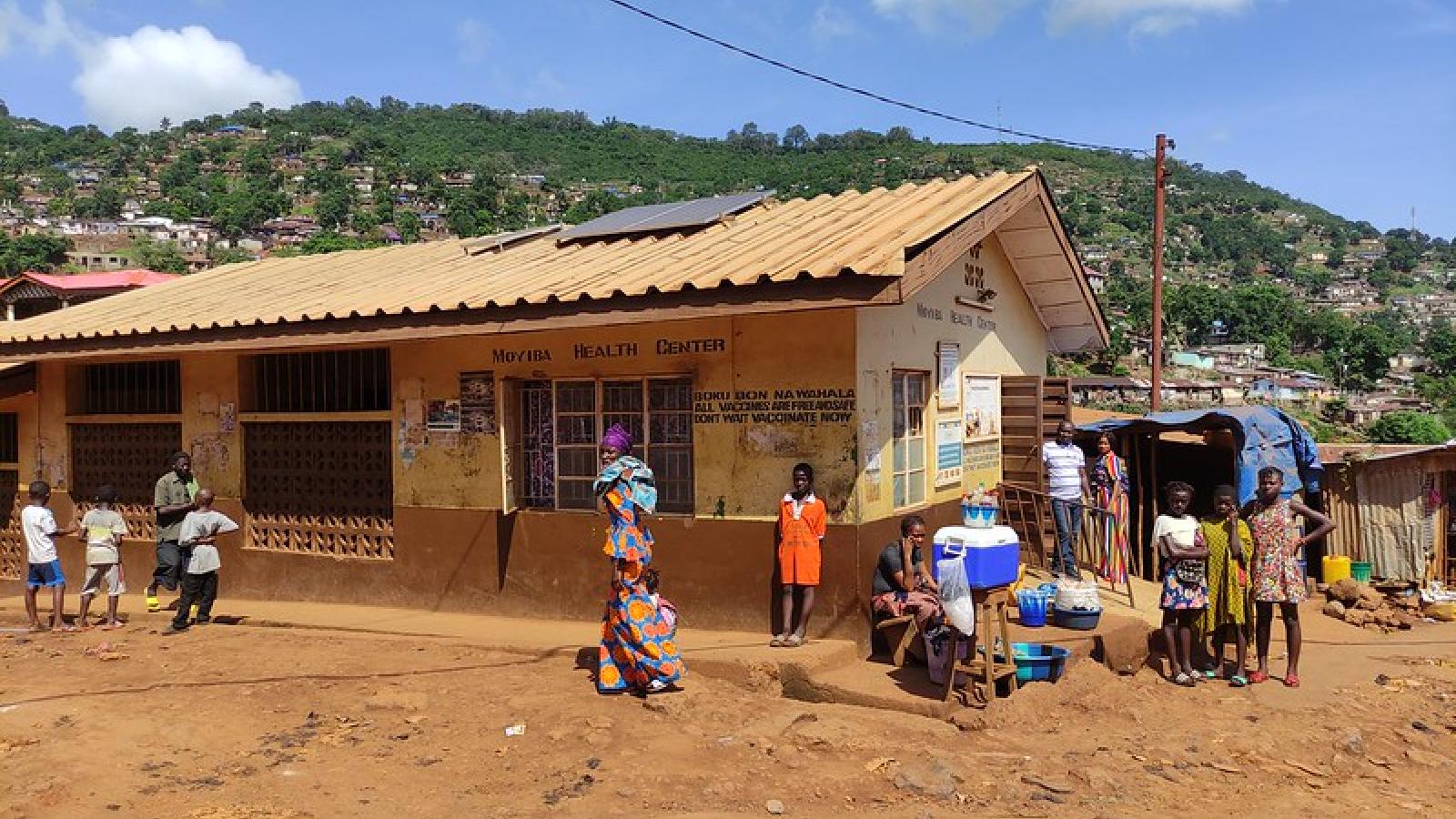City Spotlight
Building an Equitable, Climate-Resilient Future in Freetown
From an inspiring study tour on urban cable cars to insight-filled trainings on climate action planning and finance, UrbanShift has supported Freetown—and all of Sierra Leone—to accelerate its climate goals.
The UrbanShift project will conclude in October 2025. In the program’s final year, we will be looking back to assess the impact on people, climate and nature of our support to the UrbanShift countries and cities around the world. This is the second piece in this series, focusing on how the UrbanShift project in Sierra Leone’s capital, Freetown, is driving transformative positive change for its residents. Read more from Marrakech, Teresina, Alajuelita and Chennai.
Two decades ago, when Saad Barrie was in college in Sierra Leone, he remembers conversations swirling around him about the looming threat of climate change for his country. Sierra Leone, he learned, was among the 10 percent of countries in the world most vulnerable to climate risks like extreme heat and alternating floods and droughts. “But on a personal level, it hadn’t sunk in for me yet,” he told UrbanShift.
Now, as the Assistant Director of the Fiscal Decentralization Division for Sierra Leone’s Ministry of Finance, Barrie faces the reality and the urgency of climate change in his country every day. Through the country’s collaboration with UrbanShift over the past five years on the “Resilient Urban Sierra Leone Project” funded by the Global Environment Facility and the World Bank, he said, more and more people across national and local governments in Sierra Leone are recognizing the need to act. “The impacts of climate change have been visible for some time; our vulnerability has been evident. But a lot of our colleagues working in government hadn’t been taking it seriously—or those who have been on the frontlines action have felt overwhelmed, thinking they need millions of dollars to begin to address our challenges,” Barrie said. “But through UrbanShift and the capacity-building activities like City Academies, we now know that we can design and implement a wide variety of solutions, even on a low budget, that will make a difference.”
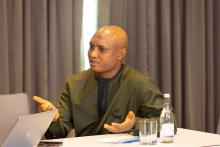
It’s fitting that one of Sierra Leone’s signature climate initiatives, #FreetownTheTreetown, focuses on planting trees to build resilience against landslides and support air quality and extreme heat mitigation. This effort could not be more urgent: The city’s climate has become much hotter in recent decades, and landslides in 2017 claimed more than 1,000 lives. Trees are remarkable tools in the fight against climate change, but it takes a number of years for them to take root and grow to reach their full potential. Through the partnership with Freetown and Sierra Leone, UrbanShift laid vital groundwork for sustainability and resilience that will continue to grow in the years to come.
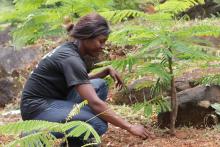
Supporting cross-government collaboration on climate action
Together with the Freetown City Council (FCC), Sierra Leone’s Ministry of Finance has overseen and executed UrbanShift’s activities in the country. “We have been in a strategic position to coordinate all the interventions and identify people to benefit from the trainings that UrbanShfit offered,” Barrie said.
Inviting broad cooperation from across Sierra Leone’s government in UrbanShift activities has strengthened the country’s commitment to climate action. Before the Sierra Leonian delegation traveled to Marrakech for a City Academy training on urban climate finance in February of 2024, the Ministry of Finance had just submitted the final draft of its fiscal decentralization policy, which provides a framework for spending and resource mobilization across levels of government in the country. However, after participating in UrbanShift’s course on climate finance, Barrie and the team realized that the decentralization policy did not address climate action. As they began to develop an implementation plan for the policy, they ensured that climate action was central to the approach.
"I'm almost certain that if we had not gone to Marrakech and gotten all of that engagement on climate action and finance, [climate action] would not be [included as a focus area in our decentralization policy],” Barrie said.
Because the UrbanShift project in Sierra Leone spans national ministries, local government in Freetown and additional secondary cities, Barrie said that it has created a stronger avenue of communication between the levels of government and opened opportunities for learning and collaboration. “Freetown, in a lot of ways, is ahead of the national government on climate action—they have laid a lot of groundwork,” Barrie said. The collaboration with the FCC spurred dialogue around “how we unlock resources around the broader climate challenge, around nature, around deploying low-cost nature-based solutions,” Barrie said. Because climate risks carry local impact, “we realized that we need all hands on deck” to address and finance climate solutions productively, he added.
Mobilizing plans for a cable-car-based transport system
This “all hands on deck” approach to urban climate challenges has accelerated momentum in Sierra Leone on the concept of cable-car-based transportation for Freetown. With buses and informal transport options struggling to adequately serve the people who dwell in Freetown’s steep hillside communities, which are among the city’s most economically vulnerable, the city has been exploring the possibility of developing a cable-car system to provide more equitable and accessible transport options. “I have to say, that before UrbanShift, the idea of a cable car system was very politicized—it was seen as infeasible or impractical,” Barrie said.
Capitalizing on Freetown’s interest, C40 Cities organized a tailored Peer-to-Peer Exchange for representatives of FCC and the Ministry of Finance to Medellín, Colombia, which has an extensive and well-used cable car network spanning its similarly hilly topography. For the Peer-to-Peer Exchange, Barrie and his counterpart in the FCC, Modupe Williams, identified key people from the national government—including the Minister of Finance and the Minister of Transport—who would be able to assess the viability of such a project for Freetown. “Following the exchange, their feedback was extremely positive—they saw how the system is making a difference in Medellín and were able to see how our topography also calls for such a system,” Barrie said.
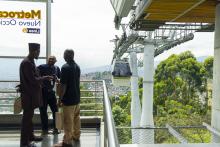
Building momentum to develop a cable car plan for Freetown could only happen with productive collaboration between the FCC and the national government. “They would need international financing, and for that, according to our laws, they would have to go through the central government,” Barrie said. By bringing the relevant national government representatives to Medellín to witness and learn about the cable car system there, the coalition was able to secure technical assistance from the C40 Cities Finance Facility for an in-depth feasibility study and strengthen their understanding around how cable cars can support equitable mobility within cities. And recently, Sierra Leone’s Director of Public Debt has confirmed that the national government is supportive of the project and keen to play an enabling role for the project to come to fruition. “I feel personally gratified that we were able to get central government involved at that early stage and that we've come up to this point,” Barrie said, adding that UrbanShift’s ability to bring national and local stakeholders together facilitated setting and working toward this significant shared goal.
Building the case for local planning and action
Through the UrbanShift program, the Sierra Leonian delegation has participated in numerous training and capacity-building events. Beyond the Peer-to-Peer Exchange in Medellín and the City Academy in Marrakech, UrbanShift has supported a geospatial planning Lab in Freetown focused on enhancing climate resilience in Moyiba, an informal hillside community in the city. The delegation from Sierra Leone also participated in the Integrated Climate Action Planning (ICAP) course during the City Academy in Kigali in 2022.
The ICAP City Academy course, Barrie said, “was a turning point” in the country’s conversation about local climate action planning and governance.
Since the 1940s, he said, Sierra Leone has operated under the colonial-era Town and Country Planning Act, which centralizes control of all development functions—from permitting to planning—through the national government. During the Kigali City Academy, Barrie said, a conversation coalesced among the delegation about the contrast between the best practices presented in the ICAP course, which emphasized locally- driven action, and the urban planning restrictions that towns and cities face in Sierra Leone. After attending the course, representatives of the Ministry of Lands, which oversees planning for the central government, and development officers from local councils formed a WhatsApp group to keep the discussion moving. “That relationship and that exposure for the development planning officers and the Ministry of Lands Director opened the door to having a conversation around the need for effective revision of the [Town and Country Planning] Act,” Barrie said. Now, the Sierra Leonian Parliament is considering a bill to revise the Act and devolve more development functions to municipalities. This bill, Barrie said, would represent a significant step forward in cities’ abilities to address their challenges and advance climate action proactively.
To conclude, Barrie told us that urban transformation does not happen overnight. “It’s a slow process,” he said. Nonetheless, the work unfolding across Freetown and Sierra Leone that UrbanShift helped catalyze is making a substantial impact. “There are conversations happening now about improving roads, improving sanitation. Communities want to deploy biodigesters to transform waste into energy in Freetown. We’re talking about enhancing green spaces and nature. All of this is happening,” he said. Equipped with the knowledge gained through UrbanShift and the momentum to transform processes across the country to support local climate action planning and programs, Sierra Leone is pointed toward sustainability and resilience.
Saad Barrie is the Assistant Director of the Fiscal Decentralization Division for Sierra Leone’s Ministry of Finance, co-leading the Resilient Urban Sierra Leone project. He is one of the UrbanShift focal points in Sierra Leone.
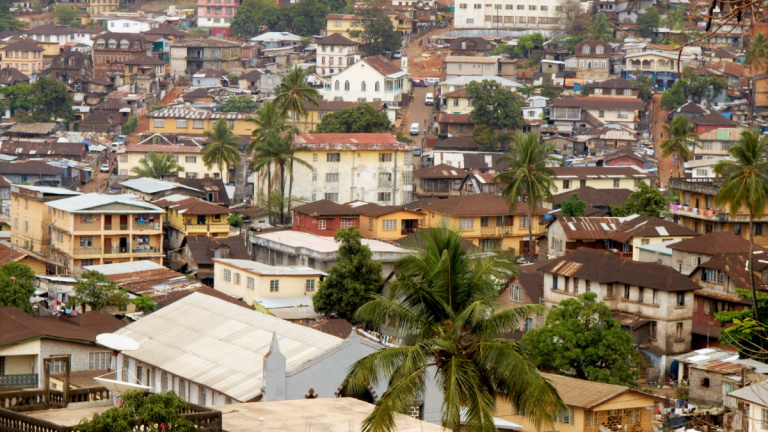
How Africa’s First Chief Heat Officer is Helping to Create a More Resilient Freetown
As extreme heat rises across the globe, Eugenia Kargbo is showing how cities can prioritize strategies to mitigate risks and support residents' wellbeing.
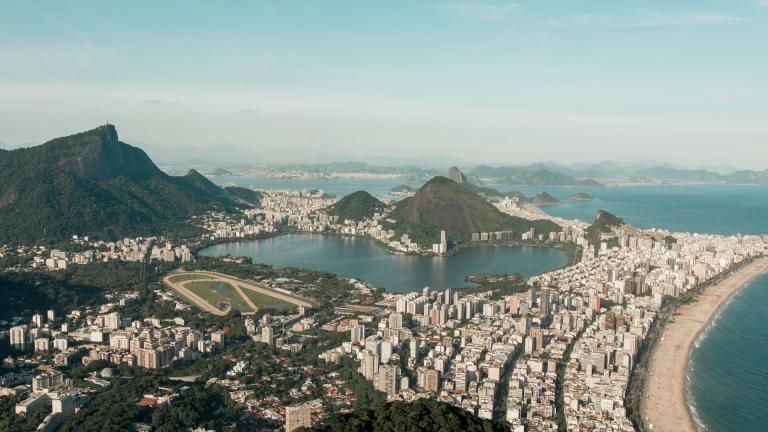
UrbanShift at COP30
UrbanShift will be participating in a range of events during the Local Leaders Forum in Rio and COP30 in Belém. Learn more here.
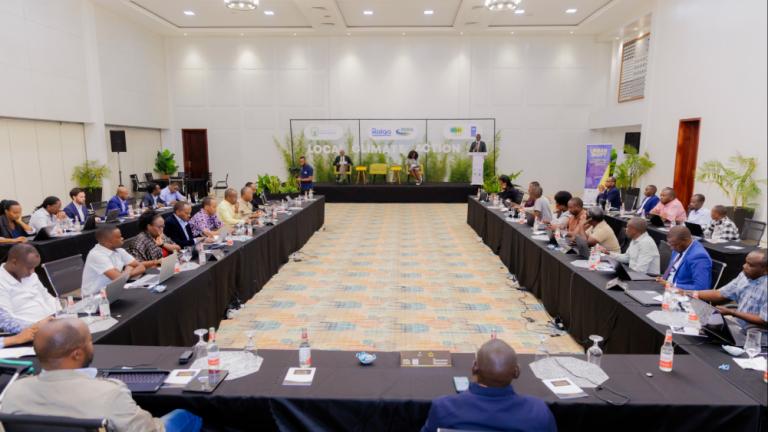
UrbanShift Looks Back: On the Importance of Facilitating Multi-Level Collaboration
Over the course of the UrbanShift program, ICLEI has led on National-Local Dialogues and other efforts to support enhanced collaboration across levels of government to create more aligned, actionable climate strategies.
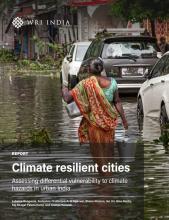
Climate Resilient Cities: Assessing Differential Vulnerability to Climate Hazards in Urban India
The report highlights the need to integrate equity into climate action planning in Indian cities. It examines how socioeconomic inequality and marginalization shape climate risks.
